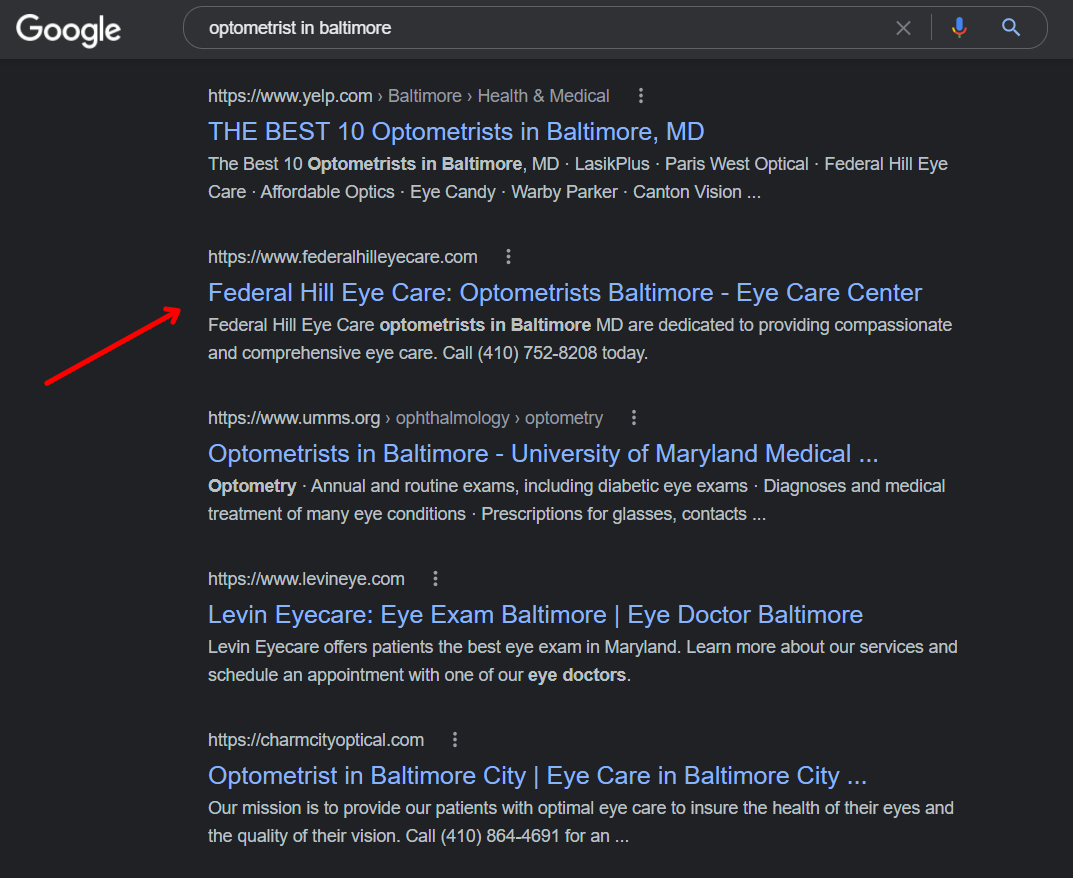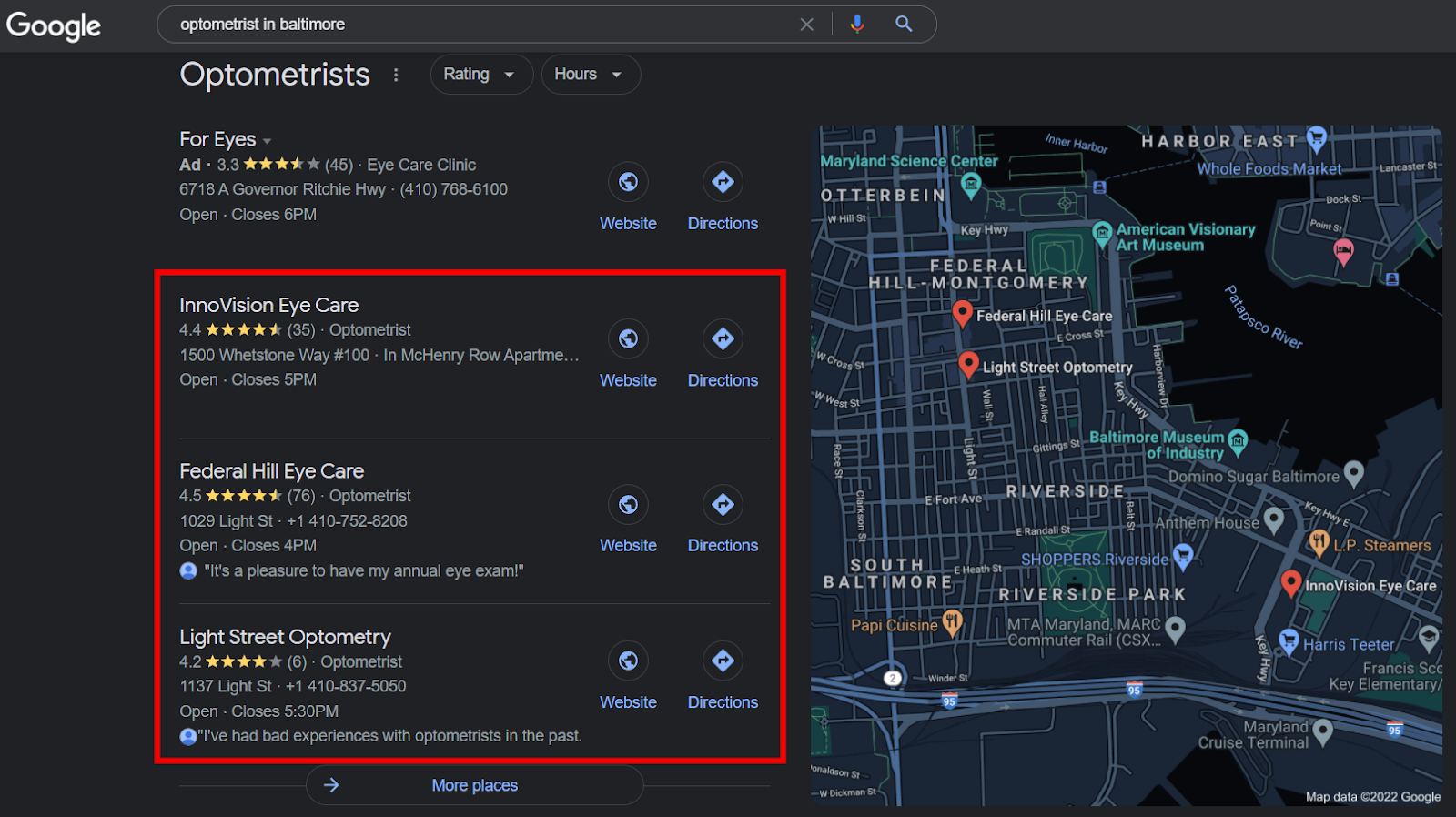
Today, most people use search engines such as Google to find healthcare services.
Because of this, having a website is essential to the success of your medical practice.
But simply having a website won’t cut it - with so much competition, you also have to make sure potential patients go to your website first.
And while the most obvious solution is paying to advertise your website, that can get expensive very quickly, so, to some medical practices, it’s not even an option.
Well, what if we told you there’s a cost-effective way to improve your website so that it ranks high on Google and attracts new customers left and right?
With search engine optimization (SEO) for healthcare practices, people will be able to find - and choose - your healthcare clinic first and your business will thrive in no time.
So, if you want to learn all about what healthcare SEO is and how to do healthcare SEO effectively, you’re in the right place.
Learn how to simplify your practice workflow and free up more time for patients with Medesk.
Open the detailed description >>We’ll cover all of that and more, so let’s dive in.
What is Healthcare SEO?
Before we delve into healthcare SEO, let’s define what SEO is in general.
As mentioned above, SEO stands for search engine optimization - essentially, it’s the process of making a website easier to find for people by getting it to rank high on search engines such as Google.
So, healthcare SEO refers to a type of SEO that focuses specifically on optimizing healthcare websites for search engines.
Now, why is healthcare SEO important to your medical practice?
Well, let’s say you run an optometry practice in Baltimore.
If someone needs your services, they’ll typically type “optometrist in Baltimore” or “optometry clinic Baltimore” in Google’s search bar.

For this specific search query, Google retrieves nearly 40 million search results in under a second - in reality, though, most people only check the search results on the first page.
Medesk helps automate scheduling and record-keeping, allowing you to recreate an individual approach to each patient, providing them with maximum attention.
Learn more >>In fact, nearly 30% of people click on the first organic search result, which means that ranking at the #1 spot on Google can attract tons of potential patients to your medical practice’s website.
And that’s exactly why you need healthcare SEO and medical device seo for your medical practice!
What’s more, medical practices operate locally, so you can also benefit from doing local SEO that can help your healthcare business to be included among the three local businesses in what’s called a ‘local pack.’
Here’s what it looks like:

This way, your medical business can get much more exposure.
Increasing your website’s visibility and attracting more traffic into your website, however, aren’t the only benefits that healthcare SEO can bring to your practice.
Here are some other advantages of doing healthcare SEO:
- Better user experience. Healthcare SEO helps to optimize your website so that it loads fast and is easy to navigate - both of which can significantly improve your patients’ user experience and even encourage them to recommend your clinic more!
- Increase patient trust. Having your website ranking at the #1 spot can help you to be perceived as an expert in your medical field by potential patients. Thus, top SEO companies in USA help to build brand authority in the healthcare sector.
- Attract relevant traffic. Healthcare SEO specifically targets people looking for your healthcare services, so they’re more likely to visit your medical practice and use your services. Investing in the services of a skilled Perth SEO agency could significantly elevate your healthcare marketing strategy.
How to Do Healthcare SEO - 3 Important Factors
Now that you know what healthcare SEO is and why it’s relevant for your medical practice, it’s time to discuss how to do healthcare SEO!
As a medical professional, you probably don’t have previous experience with SEO, so your best option is to hire an SEO agency that provides healthcare SEO services.
Nonetheless, for any healthcare SEO campaign to be successful, it should focus on these 3 essential factors:
- On-page healthcare SEO
- Off-page healthcare SEO
- Healthcare local SEO
On-Page Healthcare SEO
Essentially, on-page SEO deals with optimizing your web pages to improve their ranking on search engines.
In other words, on-page SEO covers everything that’s on your website, including code, text, images, as well as other factors that you can control and optimize, such as your website loading speed.
Here are all on-page SEO elements that are important for healthcare SEO:
- Title tags. Basically, this is the headline that your potential patients will click on Google to visit your page. As such, you have to make sure your title tag is attention-grabbing and accurate, so make sure it includes your targeted keyword (e.g. physical therapy clinic Houston).
- Meta description. Meta descriptions are short summaries of your web page content that show up in the search engine results page below the title tags. Make sure to mention your targeted keyword in the meta description, just like in the title (e.g. optometry clinic Baltimore).
- Alt tags. Alt tags are HTML attributes that describe images so that Google can understand what’s displayed in the image.
- Header tags. H1 and H2 header tags tell Google what your web page is about.
- Anchor text links. Anchor text is the clickable underlined text (typically another color, such as blue) that describes what’s in the page you’re linking.
- Text formatting. Bold and italic text formatting emphasizes text, increases its readability, and lets Google understand what’s relevant in the text.
- Footer. Footer is the section at the very bottom of your web page that contains information, such as contact details, links to other pages on your website, and your social media icons. Optimizing your footer helps to make your website easy to navigate and understand for visitors and search engines alike.
- Sitemaps. A sitemap is a file used to tell Google which of your web pages is the most important.
- Page loading speed. This is one of the most important ranking factors for Google, so you should aim to have a fast-loading website. Page loading speed matters to your website visitors as well - if your page takes forever to load, users will jump straight to your competitors’ webpages, which means you can lose potential patients.
- Mobile-friendliness. Research shows that 68% of health-related searches take place on mobile devices. Because of this, having a mobile-friendly website is crucial to the success of your healthcare SEO.
- Updating content. Regularly updating your content is vital to healthcare SEO. It helps you rank higher on Google as well as attracts more potential patients to your website who are looking for the latest healthcare information. If you’re struggling to update your written content, you can use an AI rewriter. This tool helps refresh the old content, make it more engaging and a quality content.
Discover more about the essential features of Medesk and claim your free access today!
Explore now >>Off-Page Healthcare SEO
While on-page healthcare SEO covers all the elements of optimizing your medical website, off-page healthcare SEO refers to any actions that are taken outside of your website to draw more awareness and increase your website’s rankings on Google.
Essentially, off-page healthcare SEO focuses on getting other websites to link back to your website.
Each time another website links back to your website, Google sees it as proof that your website is trustworthy, credible, and reputable, which helps you rank higher.
Of course, being “featured’ on other websites can also drive more visitors to your website, which is another reason why backlinks are an important part of healthcare SEO.
What you should keep in mind, however, is that some backlinks are more valuable than others, so having your website linked on relevant, healthcare-related websites is much more beneficial to your business as it helps to build your authority. Working with a specialized healthcare SEO company can help you secure high-quality backlinks and develop an effective off-page strategy tailored to your medical practice.
For this reason, to get the most out of off-page healthcare SEO, you should get your website linked to these sources:
- Healthcare directories. Having your website listed in healthcare directories, such as Doximity and Healthgrades, is great for healthcare SEO and helps patients looking for your healthcare services to find your medical practice. Healthcare directories are also important for reputation management, as your patients can leave and read reviews.
- Press releases. Press releases are a great way to get more exposure to your medical practice and let people know about, for example, new healthcare services in your practice.
- Social media. Having active social media profiles can help you to connect with existing and potential patients. Moreover, having a substantial following on social media may have a positive impact on healthcare SEO as it also helps to build your brand authority.
- Blogs and online articles. Backlinks from blogs and online articles can increase your brand awareness and drive more traffic to your website.
Healthcare Local SEO
Medical practices operate as local businesses, which is why local SEO is an important factor in the success of healthcare SEO.
When it comes to local SEO, it’s first important that your medical practice has a well-organized Google My Business (GMB) profile. This way, your medical practice will show up on Google Maps.
Even more, a detailed, accurate, and up-to-date Google My Business profile can help you to improve your local ranking.
Here are the 3 factors that Google considers to determine your local ranking:
- Relevance -does your medical practice provide the services the searcher is looking for?
- Distance -how close to the searcher’s location is your medical practice?
- Prominence -do people give your medical practice good reviews and is it listed in directories?
So, taking the time to set up your GMB profile is key to doing local SEO successfully as it provides Google crucial information about your medical practice (e.g. your services, your address, ratings, etc.) and helps you rank better locally.
Once you have your Google My Business profile set up, here’s what you should do to make local SEO work for your medical practice:
- List your information consistently across the internet. To rank high on Google, make sure that your medical practice’s details are listed the same across different directories, your website, and elsewhere across the Internet (e.g. if you go by ‘Dr. Michael Jones’ on your Google My Business account, don’t list yourself as ‘Dr. Mike Jones’ in directories).
- Manage reviews and ratings. Good reviews increase your prominence and improve your local ranking, so they’re important for both your patients and healthcare SEO. Managing, responding, and taking your patients’ comments into consideration is also vital to reputation management and improving your practice.
Healthcare SEO FAQ
If you still have some questions regarding healthcare SEO, you’ll probably find them answered here:
#1. What Are the 3 Components of SEO?
The 3 components of SEO are as follows:
- On-page optimization deals with the elements on your web pages and your website’s usability to increase its rankings on search engines.
- Off-page optimization involves building your website’s authority and getting high-quality backlinks that can boost your website’s ranking.
- High-quality content means creating content that’s relevant, informative, and can attract more traffic to your website.
Learn how to simplify your practice workflow and free up more time for patients with Medesk.
Open the detailed description >>#2. How Do Healthcare Practices Do SEO?
Typically, healthcare practices hire SEO agencies to help them with healthcare SEO, which includes optimizing your website for search engines, getting quality backlinks from other websites to build brand authority, and doing local SEO to improve local rankings.
Conclusion
By now, you should have a better idea of what healthcare SEO is and how your medical practice could benefit from it.
So, let’s just go over some of the key points about healthcare SEO we mentioned in this article:
- Healthcare SEO is the practice of getting websites to rank higher in search engines focused specifically on healthcare businesses.
- Healthcare SEO can help you to attract more potential clients to your website.
- The three most important factors of healthcare SEO are on-page SEO, off-page SEO, and local SEO.
- Backlinks from relevant websites can improve your ranking and attract more visitors to your website.
- Local SEO is vital to local businesses, including medical practices, and can help you get placed among the local pack, which in turn can give you more exposure.


